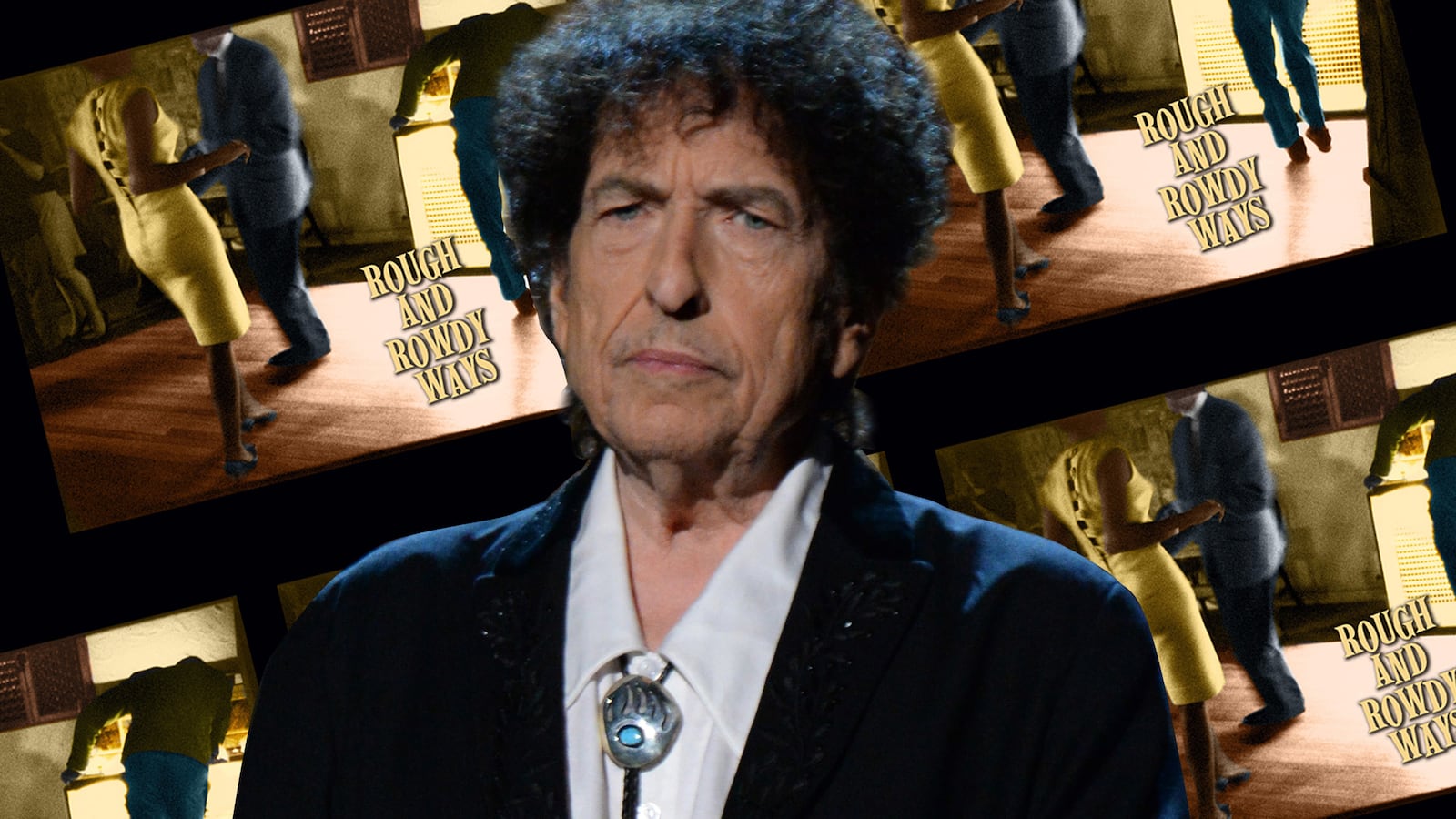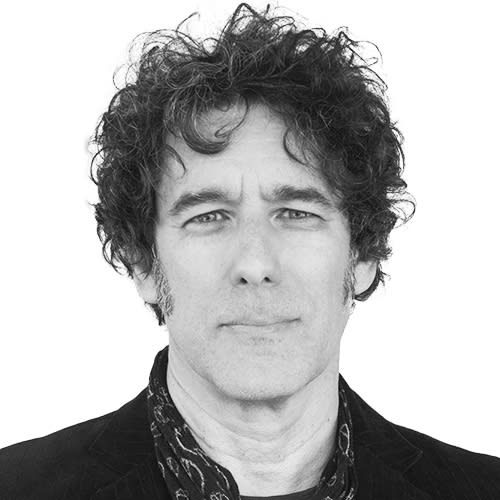Bob Dylan is a heavyweight champion. Five stars aren’t enough for his new album, Rough and Rowdy Ways.
The album, released Friday, is a masterpiece, and a masterclass in lyric-writing in league with Dylan’s—and therefore anyone’s—best. While vaguely mining the same musical landscape Dylan has explored since 2001’s Love & Theft—a sort of modern day juke joint mixture of pre- and post-rock and roll swing—Dylan is on fire lyrically throughout Rough and Rowdy Ways, offering up ten songs as dense in imagery and flawless in craftsmanship and quality as any of his long career.
In a momentary fit of fanboydom, I once asked Tom Petty what Dylan was really like. A fan himself, Petty squinted over his sunglasses at me, smiled broadly and said, “Bob is really, really funny. Most people don’t get that.”
That humor is on full display here. Not the sort of humor that Dylanologists seem to try endlessly to convince non-diehards of, but genuine, dark, dry, old school wit tinged with pathos.
A few years ago I had to argue that Dylan deserved his Nobel Prize in Literature. Most of the hate mail I received from those who took issue with Dylan being awarded the honor came from aggrieved Philip Roth fans, so make of that what you will. But here, on his first album of original songs since winning the Nobel, Dylan’s lyrics are dark, moody and dense, mixing pop culture, philosophy, history, Shakespeare, love, mortality and the apocalypse, all with that absurdist bent Petty was referring to.
Still, Rough and Rowdy Ways reaches into the past to warn us that “the worst is yet to come,” and a modern apocalypse (that may already be upon us) hangs over the proceedings. It’s the dark flipside of the Great American Songbook Dylan has explored over the past decade. But if the end is nigh, that’s nothing new for Dylan.
Dylan’s voice also sounds great. I firmly believe Dylan is one of America’s all-time great singers—because his expressive, in-the-moment delivery is wholly original, ever-changing and without peer—and Rough and Rowdy Ways only supports my case.
If there’s less melody and more atmosphere here than on Dylan’s “Sinatra” albums, his ragged but still unbelievably emotive voice is front and center. And if he’s adopted some of the playfulness he clearly took to heart from his deep dive into Sinatra’s songbook, he’s also learned more than a thing or two about Sinatra’s impeccable timing, giving even his darkest lyrics a lilt that belies the often heavy nature of what Dylan is conveying.
Meanwhile, while you’ve been stuck in lockdown, watching Netflix, Bob Dylan has been welding and painting, which perhaps accounts for all the imagery of nature that acts as a counterbalance to the thick pop culture references and dark imagery throughout Rough and Rowdy Ways.
“The song is like a painting,” Dylan told the New York Times recently about the epic, 17-minute JFK rumination “Murder Most Foul,” which he dropped as a midnight surprise in March, when only a handful knew Dylan had been hunkered down in the recording studio. “You can’t see it all at once if you’re standing too close.”
Already Dylan’s lyrics on the album have been pored over by amateur—and not so amateur—academics. But if there’s one thing I learned from my deep dive into his 1970s masterpiece Blood On The Tracks a few years ago, it’s that Dylan’s meaning is never plain, and is often beside the point, especially to him, and that approaching his lyric-writing as a painter approaches his subjects allows him to deal with multiple layers of meaning—and often more than one story or subject-matter—at once.
But even setting aside the grand “Murder Most Foul”—which occupies a separate disc here, setting it off appropriately, even though it could have easily fit on the first CD proper—this album is still 50-plus-minutes of Dylan at his most intense and most reflective.
Dylan intones, “I’ve already outlived my life by far,” and later, “Today and tomorrow and yesterday, too, the flowers are dyin’, like all things do.” It feels like grim, end-of-life stuff. So is Rough and Rowdy Ways a valedictory? A victory lap? “Tell me when, tell me how/If there was ever a time then let it be now/Let me go through, open the door/My soul is distress, my mind is at war,” Dylan seems to be telling Death in “Black Rider,” so it’s a reasonable assumption, though he does threaten to cut off Death’s hand at one point. So perhaps a safer reading is likely that Dylan is looking inward while witnessing the world we’re living in coming apart at the seams—as it has at least a few times during his 79 years—and is hoping that we do the same.
Standout tracks “My Own Version of You,” full of rapid-fire lyricism in which Dylan imagines himself a romantic Dr. Frankenstein, and album closer “Key West (Philosopher Pilot),” stand amongst Dylan’s most gorgeous, but are also nothing if not reflective. Even “Goodbye Jimmy Reed,” one of the more rocking numbers on Rough and Rowdy Ways, bounces and swings, before turning autobiographical with a mournful, contemplative tone.
Of course poring over Dylan’s lyrics for meaning is nothing new. It’s something even his most casual fans are guilty of. But after spending some time with Rough and Rowdy Ways, what became most obvious is that it is indeed more funny than dark, and reveals itself in never-ending and unfolding ways, most surely yet to be fully realized.
In Chronicles, his 2004 memoir of sorts, Dylan recalled being at a low ebb, and stumbling into a grubby, jump blues roadhouse bar. Like a bolt of lightning, the dark setting and darker music lightened his grim mood, and helped spur him toward this latest, infinitely fertile period of his career. So perhaps the lesson in Rough and Rowdy Ways is that inestimable light can come from the dark places, once again making Dylan the voice we need to hear, just when we need it most.

